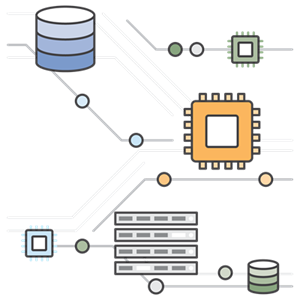AWS News Blog
AWS Webinars – April 2016

Our 2016 series of webinars continues with a strong set of 200-level topics in April. The webinars are free, but space is limited and you should sign up ahead of time if you would like to attend. Here’s what we have on the calendar for the last week of April (all times are Pacific):
Tuesday, April 26
Are you ready to launch and connect to your first EC2 instance? Do you want to learn how to use Amazon Simple Storage Service (Amazon S3) to store and share files? Our getting started webinar will show you how to do both.
Webinar: Getting Started with AWS (9 – 10 AM).
Do you want to learn how to use Apache Spark to analyze real-time streams of data on an Amazon EMR cluster? Do you want to know how to use Spark as part of a system that includes Amazon DynamoDB, Amazon Redshift, Amazon Kinesis, and other big data tools? This webinar will show you how to use Spark to address common big data use cases.
Webinar: Best Practices for Apache Spark on AWS (10:30 – 11:30 AM).
Are you interested in running a commercial relational database in the cloud? Do you want to know more about best practices for running single and multiple database instances, or do you have questions about costs and licensing? Attend this webinar to learn more about Amazon RDS running Oracle.
Webinar: RDS for Oracle: Quick Provision, Easy to Manage, Reduced Cost (Noon – 1 PM).
Wednesday, April 27
In today’s real-time world, going from raw data to insights as quickly as possible has become a must. Fortunately, a number of AWS tools can help you to capture, store, and analyze real-time streaming data. Attend this webinar to learn about Amazon Kinesis Streams, Lambda, and Spark Streaming on Amazon EMR.
Webinar: Getting Started with Real-Time Data Analytics on AWS (9 – 10 AM).
As you move your business and your applications to the cloud, you should also look at modernizing your development and deployment practices. For example, many AWS customers use tools like AWS CodePipeline and AWS CodeDeploy to implement continuous delivery. Attend this webinar to learn more about what this means and how to put it in to practice in your own organization.
Webinar: Getting Started with Continuous Delivery on AWS (10:30 – 11:30 AM).
Now that Amazon S3 is a decade old, we have a wealth of experience to share about the best ways to use it for backup, compliance, archiving, and many other purposes. This webinar will share best practices for keeping your data safe, and will also provide an overview of several different transfer services.
Webinar: S3 Best Practices: A Decade of Field Experience (Noon – 1 PM).
Thursday, April 28
AWS Lambda brings some new flexibility to the development and deployment process. When used in conjunction with AWS Storage Gateway, it can be used as the basis for an automated development workflow that easily supports distinct development, staging, and production environments. Attend this webinar to learn more.
Webinar: Continuous Delivery to AWS Lambda (9 AM – 10 AM).
Amazon Aurora is a MySQL-compatible database engine that can boost performance, reliability, and availability while reducing the total cost of ownership. Join this webinar to learn more about Aurora and to better understand how to migrate your existing on-premises or cloud-based databases to it.
Webinar: Migrating Your Databases to Amazon Aurora (10:30 – 11:30 AM).
Containers and microservices are both a natural fit for the cloud. Attend this webinar to learn more about the challenges that might arise and the best practices to address them.
Webinar: Running Microservices on Amazon ECS (Noon – 1 PM).
— Jeff;